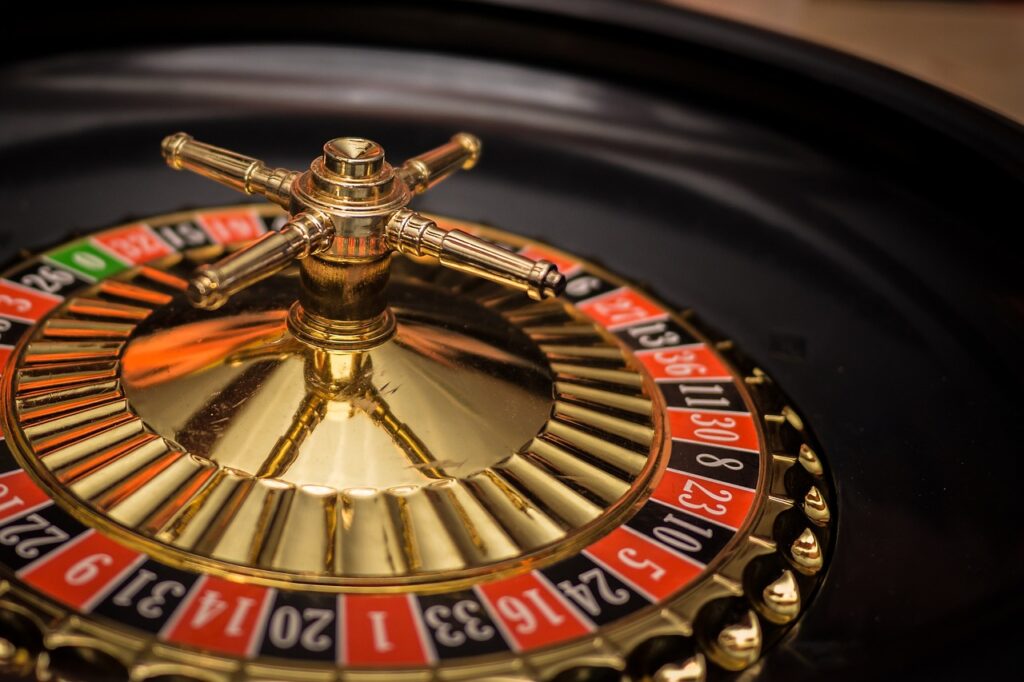How to Win at Roulette Using a Mathematical Approach: Complete Guide
Is it Possible to Win at Roulette with a Mathematical Method?
In roulette, players can take advantage of several fundamental mathematical principles that will make their bets more likely based on such concepts. First of all, it is worth mentioning the probability theory, which provides the ability to calculate how likely it is that a certain outcome will appear on the next spin. It even gives play to the casino favorite in the long run; different possibilities will provide good risk management.

In addition, it is also necessary to cite the theory of large numbers, which states that by increasing the number of turns, the results tend to approximate the expected probabilities. Although in the short term this seems to be impossible to follow, in the long term, the ideas become standardized and become smooth and delicate. Additionally, some players employ some complex mathematical series, such as the well-known Fibonacci sequence, or the Martingale method, which is a good way to control the amount of bets. In the case of the Fibonacci sequence, it is a system in which the next bets will always be the same if the player has succeeded and has turned twice as much in case he has lost. However, even this approach does not completely eliminate the chance of losing everything when playing roulette. Although it allows more experienced players to better manage their bets and better control their taking process. One must remember that there are no sure-fire ways to win in a game of chance. Every roulette spin remains a game of total chance due to chance.
Mathematical Principles Applied in Roulette
Undoubtedly, the odds that dictate the consequence of each roll are essential for players to judge how much peril they are accepting. Though in the brief term some digits may not surface or may be duplicated more periodically haphazardly, in the prolonged term, the regularity with which every surfaces tends to balance out with what is anticipated in phrases of chance. Understanding this permits us to grasp which bets are riskier than others.
The Notion of Possibility in Roulette
Wagering money on a solitary figure has a 1% opportunity of success, whereas crimson or dark has a 48% possibility, contemplating half of the roulette wheel. It additionally permits, even though not controlled, to govern expectations and, as in the dart illustration, to optimize income thanks to a administration of genuine probability records. As more turns pass, the likelihoods equivalent those of the anticipated probabilities, which guarantees that the anticipated is fulfilled relating to statistical neutrality inherent prior to the laws of probability instead of in a mere statistical randomness. In this sense, though in the European roulette the chance of an actual number coming out is 1 in 37, this does not imply that in a few turns that number has not come out or has seemed many times. As more turns pass, the bar tends to look more and more like what is expected.

The theory of enormous numbers
This conception is valuable for comprehending that unforeseen activities or extreme outcomes may arise in the brief term, but over the prolonged term, with a adequate statistical sample, games of chance conform to the anticipated probabilities. However, one can never predict with certainty when these anticipated outcomes will surface; only that they will do so over time, anyway. This puts players’ expectations into long-term viewpoint.

Mathematical Sequences Measured in Roulette Tactics
Mathematical sequences are regularly utilized in roulette systems to better oversee the put resources into capital. One of the generally famous is the Fibonacci succession, in which each number is the total of the past two ones: 1, 1, 2, 3, 5, 8, 13, and so on.; it works along these lines that bettors don’t lose all their capital and can even recuperate lost bets. Along these lines, a system dependent on Fibonacci comprises of betting the initial unit and, in the event that you lose, expanding the bet by the following whole in the arrangement with the goal that the venture step by step develops until you make a benefit. Then again, on the other hand in the event that you win, the bettor goes back two stages in the arrangement and typically recovers what was bet. On the off chance that you lose three bets in succession, it is prescribed to return to the initial arrangement of 1, 1, 2 units; by doing this, on the off chance that you win in the fourth cycle, you go back to the initial step and bet one unit. Regardless of offering an arrangement for overseeing capital, the Fibonacci arrangement is still subject to possibility.
Mathematical Tactics to Win at Roulette
There are different techniques for playing roulette that point more toward overseeing your bankroll than ensuring a win. These systems include changing the size of your bets in view of past outcomes, with the primary objective of losing less and expanding the chances that a resulting win will counter earlier misfortunes, along these lines creating a little additional benefit. A portion of the generally famous systems incorporate:
Martingale framework

In this mode, the gambler takes a risk by upsizing his wagers in an aggressive way after each losing outcome, with the ambitious goal of recouping all prior losses and achieving a profit by the next win. While intuitively attractive, its execution necessitates deep pockets able to withstand repeated defeats without funds drying up and could fuel an unhealthy addiction in the face of relentless disappointment.
Fibonacci Formula

Here, bets climb step-by-step following the Fibonacci sequence, limiting the pace of risk-taking compared to doubling down. Losing streaks are less likely to deplete one’s bankroll precipitously. The gradual upsizing keeps hope alive longer by postponing financial ruin.
However, the Martingale strategy presents both peril and promise. If a unit is lost on a spin, logic says to counter with a doubled bet, canceling out the previous loss. But a repeat defeat demands quadrupling down, and further failures exponentially inflate the necessary wager. While enticing to think one big win pays off all prior setbacks, in reality persistent bad luck needs only a single unlucky run to catapult liability beyond available funds.
D’Alembert Doctrine

The D’Alembert philosophy aims to manage risk and reward on games of chance like roulette through prudent betting discipline. Similar to Martingale or Fibonacci, it seeks to minimize losses over time.
Its premise holds that after defeat, the next result is more likely to favor victory. Therefore, one raises the bet after a loss and lowers it after a win, altering the bet size incrementally by a single unit each time – a far more gradual adjustment than accelerating progression schemes such as Martingale that can quickly overwhelm.
Operation of the D’Alembert system:
- The player starts by betting a fixed amount.
- After each loss, the bet is increased by one unit.
- After each win, the bet is decreased by one unit.
The D’Alembert approach to roulette provides a measured means of managing risk. This controlled system starts simply, with a fixed initial stake. Thereafter, wins decrease the next bet by one unit while losses increase it, keeping fluctuations narrow. Though not stopping bad luck, this soothing strategy smooths the sharp edges of chance.
Advantages of the D’Alembert system:
- Allows for more controlled capital management.
- Reduces the risk of significant short-term losses.
- It is simple to apply and does not require complicated calculations.
- Disadvantages of the D’Alembert system:
- It does not guarantee a long-term win.
- If a long losing streak occurs, the player may still run out of funds.
Advantages make the methodology more temperate. Capital swings stay light, curbing the risk of swift ruin. Moreover, calculations stay uncomplicated, implementing easily. Yet imperfections remain, for success stays uncertain over time. Extended slumps could still deplete funds regardless of restraint. Overall, the process offers a appeased path for those seeking stability, not assurances, above all remembering that no tactic conquers fortune’s fickle nature.
Paroli system
Still, alternatives exist. The Paroli alternative takes a bolder road, building bets after triumphs instead of reducing them. This triggers greater gains yet brings larger jeopardy too, as the size of wagers balloons rapidly on a run of wins. Though volatility can reward the daring, the perils prominently outweigh promises. For most, D’Alembert offers the wiser way to weather roulette’s whims.
Two opposing approaches to managing chance fortune Paroli relies on capitalizing luck to a player’s benefit through meticulously pondered bets only upped in successions while losses revert stakes to initial rates, ensuring blows are cushioned. This cushion accompanies a fiscal logic: maximize earnings during success while avoiding large single exposures to dice rolls. On the other hand, Labouchere employs a numeric sequence for wagering. Yet this clarifies neither if recovering deficits with heightening wagers is the design nor profiting from a positive streak by slowly boosting funds staked, like Paroli’s method. Both techniques aim to domesticate uncertainty through preset schemes; regardless, fortune’s caprice in gaming frequently determines the actual final result.

Labouchere Strategy
The Labouchere technique centers on a numeric listing for amounts risked. While mathematical methods propose controlling volatility, chance in roulette commonly concludes outcomes contrary to strategies. Overall, whether recovering or riding prosperities, schemes offer temporary command yet eventually yield to luck at the table.
| Passe | Action | Result |
| 1 | The player chooses a sequence of numbers. | Example: 1, 2, 3, 4, 5. |
| 2 | Add the first and last numbers in the sequence to determine the bet. | First bet: 6 units (1 + 5). |
| 3 | If you win, remove the numbers used. | New sequence: 2, 3, 4. |
| 4 | If you lose, add the bet amount to the end of the sequence. | New sequence after a loss: 1, 2, 3, 4, 5, 6. |
| 5 | The goal is to leave the sequence empty after winning all bets. | The player recovers his investment if he manages to empty the list. |
| 6 | If the player runs out of money, he loses the game. | The risk of ruin is high if losses continue. |
| 7 | The advantage lies in orderly decision-making. | Facilitates organized control of bets. |
| 8 | It does not guarantee victory due to its dependence on chance. | Roulette results cannot be predicted. |
This table provides a clear and structured view of how to apply the Labouchere strategy. It is essential to remember that, despite the order that this strategy can bring, there is no guarantee of success in games of chance such as roulette.
Advantages and Disadvantages of Mathematical Methods in Roulette
However, despite its disadvantages mentioned above, the mathematical approach to roulette also has a number of benefits:
- It allows a more efficient management of the available capital. On the contrary, by following the system, players do not risk large sums in a single spin, distributing the amount wagered over several roulette spins. It minimizes the amount of losses.
- In fact, some methods, such as the Martingale or the Fibonacci system, follow a pattern whereby the player first recovers the amount lost gradually by progressively increasing the bet. It increases discipline, i.e., it makes the player follow a betting plan and also minimizes the possibility of making unwise or hasty decisions.
- Since there is a plan for each bet, rounds in the game can be played longer, even if there are no winnings, as the player remains aware of what his next step will be in any case.
But, despite the numerous advantages of the above methods, it has several significant disadvantages:
- The system does not guarantee the outcome. Regardless of the various methods of betting management, the odds still favor the house. It requires huge amounts of initial capital.
- As for Martingale, if the player loses several rounds in a row, he will have to calculate an increasing amount alternatively, and the casino occasionally has maximum betting limits. Therefore, the player may run out of funds without having played. Although the system is designed to prevent the above situation, chance is not always in the player’s favor.
Advantages of Using Mathematical Strategies
The mathematical techniques for roulette offer some advantages as well. One benefit is improved control over chance through structuring wagers strategically across rounds rather than recklessly on individual spins. Another boon is minimized loss through judicious capital management by distributing risk across multiple bets instead of severely on single spins. A further gain is increased discipline – adhering to a pre-planned system deters impulsive actions. While mathematical systems don’t guarantee victory, they can make uncertainty somewhat more predictable through carefully considered approaches.
Disadvantages of mathematical method
Despite the advantages, mathematical roulette strategies also have some disadvantages:
Advantages of Using Mathematical Strategies
While analytical approaches in roulette provide a disciplined method for overseeing bets that pave the way for players to more capably manage their bankroll and lessen losses, it remains that though structured techniques can heighten self-control and the chances of enduring longer in the game, guarantee of victory does not exist. Roulette depends on fortune and chance plays a major role in each spin of the wheel. Consequently, it is indispensable to comprehend the degree of peril and place bets responsibly constantly. Statistical methods can be utilized and increase the probability of winning briefly, but one must not blindly rely on a number. Overall, amusement and sensory enjoyment of life are most important. Bet only with money that you are able to lose enjoyably. Interpretation of online betting and gambling is founded on logic and play. Play your games in the optimum way conceivable and with all your senses, never bet with sentiment.
Familiarize yourself with various approaches in the free demo version before betting genuine money. First of all, only play if you feel inclined towards fun. It is also required to establish the maximum permitted amount and cautiously bet, particularly if there seems to be no progress. Play with strict confines, such as betting a fixed percentage of the bankroll in each round. Bear in mind that even with techniques, the game depends largely on luck, so do not dismiss the potential for an unpredictable outcome; also, avoid excessively risky systems in short sessions, as you could lose quickly before winning. When utilizing any method, it is advisable to follow these prudent tips, as there is no guarantee of safe amusement.
Are mathematical methods compelling in roulette?

Mathematical strategies in roulette offer a structured method of managing bets that pave the way for players to manage their capital more effectively and reduce losses. However, it should be noted that while structured techniques can increase discipline and the chances of staying in the game longer, there is no guarantee of victory. Roulette is a game of chance that relies on chance and luck plays an important role in every spin of the wheel. Therefore, it is critical to understand the degree of risk and to place bets responsibly at all times. Statistical techniques can be used and increase the probability of winning in the short term, but do not blindly rely on one number. Overall, the fun and sensory enjoyment of life is paramount. Only bet with money you can afford to lose. The interpretation of online plays and bets is based on logic and gambling. Play your games to the best of your ability and with all your senses, never bet with affection.
Gamble for fun, not as a source of income: gambling should bring you joy rather than earn you a living. Seek help if you feel you are losing control over your gambling, as it may be an addiction. Even if sometimes luck smiles on you, it is necessary to analyze each bet coldly, without being deceived by dreams of quick and easy enrichment. If you follow these moderate tips, you will be able to enjoy a safe and healthy form of entertainment, without taking too many risks. Prudence and balance are essential virtues for roulette beginners and veterans alike.
Moderate Amusement
Amusement respects balances of leisure and risk management. Awareness of constraints forestalls problems linked to play.
- Establish limits before playing and adhere to them.
- Losses spur impulse, so do not chase them.
- Breaks maintain mental freshness.
- Responsibilities come before recreation.
- Assistance exists for those feeling harm from the pastime.
Playing casino games with other cryptocurrencies
Frequent Queries
Can one consistently prosper at roulette through statistics?
No such strategy prevails. Careful funds handling may lessen shortfalls but luck solely decides the wheel.
What advantages do European and American roulette grant the house, and how do odds differ?
Europe offers 2.7%, while America lifts to 5.26% through a second zero. This assures profits in the long run, defeating all schemes.
The Labouchere gambling system of wagering in chained bets can it prove a viable tactic to emerge victorious at the roulette wheel?
While unlikely to succeed, it does aid in managing losses in a more organized manner.
What does the theory of large numbers propose regarding the outcomes at roulette?
As the sample size of spins increases, the series of results will steadily converge upon the anticipated probability distribution. Specifically, over an extensive number of spins at roulette, the tally of red and black or odd and even outcomes should approach their respective expected ratios, although precisely when this alignment transpires remains unpredictable.
Could a mathematical approach thoroughly eliminate all risk inherent to the game of roulette?
No formula or strategy can make roulette completely safe. However, some methods can curtail the risk or give it a certain structure and boundaries. Nonetheless, the possibility of losing persists owing to the involvement of chance intrinsic to the game.

Our expert
Hello, welcome to our website! My name is Javier Mendoza, and I am in charge of these expert pages for online casino fans in Spain. Here you will find everything you need to enjoy a top quality experience at the Best Crypto Casinos.
I am 37 years old, I am Spanish and I work as a digital technology specialist. I spend a lot of time making things work. My job is partly about engineering and evaluation. Also, I love gaming.
That’s why my team and I created this site. Here we collect all the knowledge about the industry, our experience and what we have learned.
You can read more about our history on the “About us“ page and about me on my page.


